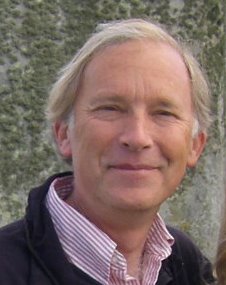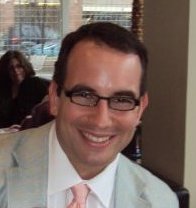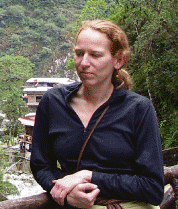
Editorial Committee
Articles published in the Watershed Science Bulletin are peer-reviewed by an Editorial Committee composed of nationally-respected watershed and stormwater management professionals. The current Watershed Science Bulletin Editorial Committee includes:
 Roger Bannerman
Roger Bannerman
Roger has worked for the Wisconsin Department of Natural Resources for over 45 years, including 5 years of volunteering for WDNR and USGS after retirement. For most of that time he has directed research projects investigating the solutions to problems caused by urban runoff. Some topics addressed by the different studies are: 1) the quality of urban streams, 2) identification of problem pollutants in stormwater, 3) toxicity of stormwater pollutants, 4) effectiveness of different stormwater control practices, 5) sources of stormwater pollutants, 6) selection of cost-effective control practices, and 7) benefits of low impact development. These results have been applied to the development of technical standards, administrative rules, and the calibration of the WinSLAMM. Roger’s ongoing research projects will continue to be used to increase the effectiveness of Wisconsin’s stormwater management efforts.
 Derek Booth
Derek Booth
Dr. Derek Booth is an internationally recognized expert on urban streams and stormwater, particularly the effects of runoff on channel form and function. His first peer-reviewed publication on the subject was in 1989; of his now more than 70 such journal articles and book chapters, more than half are on this topic. He worked for 10 years in urban watershed management for a large municipality (King County, Washington) and was the director of the Center for Urban Water Resources Management for a decade at the University of Washington. He remains an Affiliate Full Professor at the University of Washington as well as a private consultant. He was a member of the National Academy of Science’s review of the nationwide NPDES stormwater permitting system and coauthor of the committee report, “Urban Stormwater Management in the United States” (October 2008), and he is Senior Editor of the international journal Quaternary Research.
 Michael Dietz
Michael Dietz
Mike is an Associate Extension Educator in the Center for Land Use Education and Research (CLEAR) at UConn, with primary responsibilities for running the CT NEMO Program. Mike’s position is jointly held between the Center for Land Use Education and Research (CLEAR) and the Connecticut Sea Grant College Program at the Avery Point campus. He received both his Masters and Ph.D. from the University of Connecticut, focusing on stormwater and low impact development (LID) techniques. Upon his graduation, he worked with the Connecticut NEMO program from 2005 to 2007 on projects related to LID. He left Connecticut in 2007 to take a position at Utah State University as an assistant professor and extension specialist in sustainable living, where he continued to work on stormwater monitoring and LID, in addition to green building, energy conservation, and water harvesting. He was director of Utah House, a demonstration house for green building techniques.
 William Frost
William Frost
Bill Frost is a Senior Associate with the Water Resources Practice of KCI Technologies with experience in watershed planning and NPDES MS4 permitting in both the public and private sectors. His work has included GIS analysis, monitoring and assessment, H/H and water quality modeling, prioritization, and concept planning for SWM retrofits, stream restoration, and pollution prevention. He has managed over 20 of KCI’s watershed plans and in recent years he has been assisting state and local permittees with TMDL compliance and implementation plans. His modeling experience includes SWMM studies of storm drain capacity, watershed retrofits, pollutant loads, and stream hydraulics; and pollutant load models using, STEPL, WTM, GWLF, and MAST for urban and agricultural watersheds. Bill is a licensed engineer with M.S. degrees in Civil Engineering from the University of Maryland and in Urban Planning from Johns Hopkins University. His B.S. was earned at Harvey Mudd College.
 Stacey Isaac Berahzer
Stacey Isaac Berahzer
Stacey Isaac Berahzer is a Senior Project Director with the Environmental Finance Center at the University of North Carolina in Chapel Hill. She has an undergraduate degree from North Carolina Central University in Environmental Science. Her Master’s in Public Administration is from The University of North Carolina at Chapel Hill. Stacey works from a satellite office in Georgia. Here she is very involved in leadership in the environmental community, serving on the Board of Directors for the Institute for Georgia Environmental Leadership, and teaching in the Georgia Association of Water Professional’s Leadership Academy. She brings her passion for teaching about environmental protection, and her thirteen years of experience, to dozens of events in Georgia and across the country every year. Her main areas of expertise are pricing and affordability of water/wastewater services, and financing stormwater management. Stacey speaks Spanish and has a background in Caribbean water issues.
 Joseph MacDonald
Joseph MacDonald
Joseph MacDonald, AICP, is currently Manager of Environmental Planning for the Northeast Ohio Areawide Coordinating Agency (NOACA). NOACA serves as both the Metropolitan Planning Organization (MPO) and Areawide agency for Greater Cleveland. NOACA’s Environmental Planning staff update and maintain the region’s Water Quality Management Plan and encourage transportation modal choice to reduce mobile emissions; meet National Ambient Air Quality Standards (NAAQS); and improve public health. Prior to joining NOACA, Dr. MacDonald served as Project Manager of the Environment with the Northeast Ohio Sustainable Communities Consortium (NEOSCC). NEOSCC produced the Vibrant NEO 2040 Regional Vision Framework, recipient of the 2015 Daniel Burnham Award for a Comprehensive Plan from the American Planning Association (APA). Dr. MacDonald has also served as Senior Research Associate with the APA and consulted on water resource planning projects through APA’s China Program. Dr. MacDonald holds a Ph.D. in City and Regional Planning from the University of North Carolina at Chapel Hill; an M.S.P. in Urban and Regional Planning from the Florida State University; and a B.S. in Atmospheric, Oceanic and Space Science from the University of Michigan.
 Tracie-Lynn Nadeau
Tracie-Lynn Nadeau
Tracie Nadeau is an environmental scientist with EPA Region 10 (Pacific Northwest), where she works on wetland, stream, and watershed issues from the Oregon Operations Office. Prior to her move to Region 10, she spent several years in EPA’s Office of Wetlands, Oceans and Watersheds (OWOW), where she focused on wetland and watershed protection, and on science and research relevant to Clean Water Act jurisdiction. While in OWOW, she served as Team Leader of OWOW’s Policy and Communication Team, and co-Team Leader of the cross-office Watershed Planning Team. A broadly trained aquatic ecologist, Dr. Nadeau has interest and experience in both freshwater and marine systems, and has nearly 20 years of science policy, program implementation, and communication experience. She works at the science-policy interface, synthesizing and communicating state of the science on aquatic resource issues, developing and coordinating applied research projects, and serving as liaison between scientists, decision-makers, and non-scientist stakeholders across multiple levels of government and non-government partners. Tracie did her undergraduate work at the University of Michigan, has a Master’s degree in Biological Science from the University of Wisconsin-Milwaukee and Center for Great Lakes Studies, and a Ph.D. in Ecology and Evolution from the University of Oregon.
Bruce Roll
Bruce Roll is the Director of Watershed Management for Clean Water Services (CWS) and the nonprofit Clean Water Institute (CWI) in Hillsboro, Oregon. CWS received EPA’s first Integrated Watershed-based permit and currently manages the largest utility water quality trading program in the United States. Prior to joining Clean Water Services, Bruce served as the Assistant Director for Whatcom County Public Works in Washington State for eight years where he oversaw Watershed Management, Salmon Recovery, Marine Resource, River and Flood and Solid Waste Programs. In addition, Bruce also worked for the Portland Water District in Portland, Maine for five years where he was the Director of Water Resources and Laboratory Services. Bruce attended Colorado State University where he received a BS in Environmental Microbiology. In addition, Bruce received a MS and PhD from the Water Resources Research Center at the University of Hawaii and a MPH in Management from the School of Public Health. Bruce has served as a peer reviewer and technical consultant for the American Water Works Association Standard Methods Committee and the American Water Works Research Foundation. Bruce was actively involved in the development of the Puget Sound Salmon Recovery Plan where he was appointed to the Shared Strategy Steering and Oversight Committee.
 William Selbig
William Selbig
Bill is a hydrologist for the U.S. Geological Survey. For the past 15 years his research has focused on the quantity and quality of nonpoint source runoff in urban environments. Bill has been the project lead in several research studies evaluating the effectiveness of structural and non-structural practices designed to mitigate stormwater pollution. Most recently, Bill has developed new methods to improve precision and reduce errors associated with the collection, processing, and analysis of sediment and sediment-associated constituent concentrations in stormwater, including the newly developed Depth-Integrated Sample Arm (patent pending). In addition to working for the USGS, Bill is currently the president of the Wisconsin chapter of the American Water Resources Association. He also serves on several nonpoint runoff research groups including the ASCE Gross Solids Pollutant Protocol committee, University of Wisconsin Infiltration Research committee, Brake Pad Partnership of California, and CALTRANS. He has a M.S. in water resources management and a B.S. in geology, both from the University of Wisconsin.
 Neal Shapiro
Neal Shapiro
Neal Shapiro is a Watershed Section Supervisor and Watershed (Urban Runoff) Management Coordinator for the City of Santa Monica’s Office of Sustainability & the Environment. He oversees watershed management programs, all geared to reduce water pollution and use our precious, limited water resources in a sustainable manner (with a focus on rainwater/stormwater harvesting and use/reuse and post-construction structural Low Impact Development BMPs). He has been with the city since March 1999. He worked previously with The Jacques Cousteau Society, researching global water issues for films, books, policies, and expeditions. Neal attended the University of Delaware, receiving a Master’s in Marine Policy, and the University of California at Santa Barbara, receiving a Bachelor’s in Aquatic Biology. Neal is married, has 3 sons, daughter-in-law, and granddaughter (2017), and enjoys swimming, biking, hiking and SCUBA, and practicing what he preaches.
 Lisa Shipek
Lisa Shipek
Lisa Shipek is the Executive Director of Watershed Management Group (WMG), a non-profit organization based in Tucson, Arizona. Through the development and management of WMG’s diverse programs, Lisa has expertise in: leading and organizing community workshops; developing and organizing training programs for professionals; developing educational programs for K-12 students; mobilizing community volunteers to implement a wide variety of environmental projects; and collaborating with a diverse range of partners including city government, non-profits, schools, businesses, and community organizations. Lisa directs development and outreach activities for WMG including coordinating and writing grants and editing WMG’s educational materials, newsletter, and website. With a B.S. in Environmental Science and Masters in Latin American Studies, Lisa’s interest lies in the connection between the environment and human communities. Through her work with WMG, she is particularly interested in developing environmental programs that improve the quality of life in urban areas.
 Don Waye
Don Waye
Don Waye works in EPA’s Office of Wetlands, Oceans and Watersheds (OWOW) where he supports the Clean Water Act Section 319 nonpoint source (NPS) management program. Since joining EPA in 2002, he has managed numerous NPS projects, including the development of EPA’s Nonpoint Source Outreach Toolbox, low impact development fact sheets, and the Nonpoint Source News-Notes periodical. He also coordinates EPA Headquarters involvement with the Coastal Zone Act Reauthorization Amendments (CZARA) program that works with the National Oceanic and Atmospheric Administration and 34 coastal states and territories. For 15 years prior to coming to EPA, Don worked as an urban watershed planner, modeler and researcher for a regional council of governments in Virginia. Prior to that, he spent 2 years working for an environmental engineering consulting firm.
